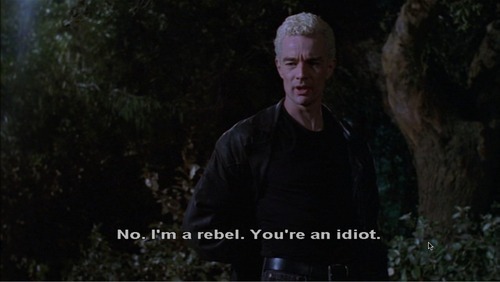Tuesday, November 17, 2015
The Fool with the Power: 5 Thesis Statements
1. Policy: The Fool is often relegated to comedic relief in one of Shakespeare's plays, but its role is not only morally complex but has also inspired a modern counterpart that pulls an audience into world defined by an alien moral system.
2. Definition: The Fool, a recurring characterization throughout Shakespeare's comedies and tragedies, is not merely a manifestation of major characters' unacknowledged consciousness; in fact, the Fool primarily serves as an objective if cryptic counterpart to the humanity embodied within characters.
3. Comparison: Joss Whedon has resurrected Shakespeare's Fool; however, while the traditional Fool served to connect characters within a work to the audience's perception of them, Whedon's trope pulls the audience into the moral scale of the work.
4. Evaluation: Although the Fool serves similar purposes across genres as a mouthpiece of truth, Shakespeare's comedies and tragedies distinguish between a Moral Fool who provides guidance and a Societal Fool who observes societal hypocrisy.
5. Causal: Although the role of the Fool was simple enough to be ubiquitously known during Shakespeare's era, its manifestations in modern entertainment have exploded to accommodate disparate social spheres and mutable moral standards.
Subscribe to:
Post Comments (Atom)

All of these sound really interesting! I think any of them could work. Your evaluation claim sounds the most interesting to me with the comparison of comedic and tragic fools, but I also think looking at modern versions of fools is a cool idea. Is there any way you could combine the two ideas?
ReplyDeleteI'm really wanting to read your Evaluation paper! That sounds absolutely fascinating to me. I also agree with Jessica though that it would be cool to also see the modern day counterparts. I think I mentioned in a previous comment sometime that the fool is such a common character that we have all seen it, but we don't always know we're watching it.
ReplyDeleteI love your topic choice, and I think it has the potential to be very interesting. I think your second point is the most interesting, because I feel like you would be adding a new perspective of the fool but comparing it against different points of analysis from past writing.
ReplyDeleteThese are well thought out claims! You have clearly been thinking through this assignment. Your evaluation claim about Shakespeare's two categories of the fool is interesting to me. I am curious to see how you define those two categories because I have never seen much of a distinction between those functions in Shakespeare's plays before. That is very interesting!
ReplyDelete